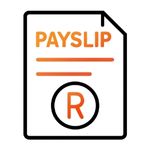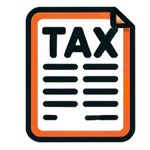
Pay-As-You-Earn (PAYE) is South Africa’s system for collecting income tax directly from employees’ salaries or wages. Employers deduct the required tax amount each month and pay it to the South African Revenue Service (SARS), helping employees meet their tax obligations gradually throughout the year. Both employers and employees have important responsibilities under the PAYE system to ensure compliance and avoid penalties.
Key Takeaways
- PAYE Is A Mandatory Tax Deduction: Employers in South Africa must deduct PAYE from employees’ salaries each month and pay it over to SARS to cover employees’ income tax obligations.
- PAYE Calculation Considers Income, Deductions, And Rebates: PAYE is calculated based on gross income, allowable deductions such as retirement contributions, and annual tax rebates, using SARS’s progressive tax tables.
- Non-Compliance With PAYE Rules Leads To Penalties: Failure to pay PAYE correctly can result in penalties, interest, legal action for employers, and tax complications or delayed refunds for employees.
About Arcadia Finance
Arcadia Finance makes borrowing simple. No application fees, 19 reliable lenders regulated by South Africa’s National Credit Regulator, and a process designed for your peace of mind.
What Is PAYE (Pay As You Earn)?
PAYE, which stands for Pay-As-You-Earn, is a method of collecting income tax by directly withholding it from an employee’s salary or wages. Under this system, employers are legally obligated to deduct the relevant tax amount before paying employees their net earnings.
Employees’ tax, which includes both Pay-As-You-Earn (PAYE) and Standard Income Tax on Employees (SITE), refers to the portion of tax that employers must withhold from remuneration and pay over to SARS. Every employer who deducts employees’ tax must be registered with SARS for PAYE purposes.
Employers are required to calculate and deduct PAYE from employees’ taxable earnings and submit these payments to SARS on a monthly basis. The act of withholding tax as the employee earns their income is what is commonly known as the PAYE system.
Understanding PAYE is one thing, but managing your personal finances smartly is another. Knowing the difference between good and bad credit score can help you keep your tax obligations and credit profile in check, ensuring you stay financially healthy while complying with SARS.

How PAYE Is Calculated
PAYE (Pay As You Earn) is calculated by determining the amount of income tax an employee owes based on their earnings and then deducting it monthly from their salary or wages. The calculation is designed to spread the employee’s annual income tax liability over the course of the year, thereby making the financial impact more manageable.
The calculation process typically follows these key steps:
Determine Gross Income
The starting point is the employee’s total gross income. This includes the basic salary as well as any additional taxable benefits such as bonuses, commissions, allowances (e.g., travel allowances), and fringe benefits.
Apply Allowable Deductions
Before calculating the taxable income, certain deductions are applied where applicable. These deductions can include:
- Contributions to retirement funds (such as pension, provident, or retirement annuity funds)
- Medical scheme contributions
- Donations to approved Public Benefit Organisations
- Any other deductions allowed by SARS (South African Revenue Service)
These deductions reduce the gross income to arrive at the taxable income.
Calculate Tax Based on Taxable Income
South Africa uses a progressive tax system. This means the more you earn, the higher the percentage of tax you pay. SARS issues tax tables each year, specifying the different income brackets and the corresponding tax rates. The employer uses these tables to calculate the correct amount of tax based on the employee’s annualised taxable income.
Apply Rebates
Tax rebates are standard amounts subtracted from the tax calculated. These are provided to reduce the overall tax liability. Common rebates include:
- The primary rebate (available to all taxpayers)
- The secondary rebate (for individuals aged 65 and older
- The tertiary rebate (for individuals aged 75 and older)
Rebates are annual amounts, so employers prorate them monthly when calculating PAYE.
Example of a PAYE Calculation
Let’s break it down using a simplified example:
- Gross Monthly Salary: R30 000
- Annual Gross Income: R30 000 × 12 = R360 000
- Annual Retirement Fund Contribution: R2 000 × 12 = R24 000
- Annual Taxable Income: R360 000 − R24 000 = R336 000
Now, using 2024/2025 SARS tax brackets (example only):
| Taxable Income Range (ZAR) | Tax Rate |
|---|---|
| 0 – 237 100 | 18% |
| 237 101 – 370 500 | 26% of amount above R237 100 plus R42 678 |
- Tax on first R237 100 = 18% of R237 100 = R42 678
- Amount above R237 100: R336 000 − R237 100 = R98 900
- Tax on excess = 26% of R98 900 = R25 714
- Total Annual Tax = R42 678 + R25 714 = R68 392
Apply Primary Rebate (2024/25: R17 235):
- R68 392 − R17 235 = R51 157 annual tax
Divide by 12 months:
- Monthly PAYE = R51 157 ÷ 12 = R4 263.08
Finalise the Monthly PAYE Deduction
Once the tax liability has been calculated and rebates applied, the resulting amount is divided by the number of months (usually 12) to find the monthly PAYE deduction. This amount is then withheld from the employee’s salary and paid directly to SARS.

Who Needs To Pay PAYE?
If you earn a salary, wage, or commission from an employer, it is the employer’s legal responsibility to deduct tax from your earnings each month. The amount deducted depends on your level of income and whether you receive any fringe benefits. This regular deduction process is why the system is called “Pay-As-You-Earn” (PAYE).
The tax deducted during the year may not represent your final tax liability. If you make more than R120,000 a year, have extra income sources, or run your own business, you’ll need to submit two Provisional Tax Returns, plus your regular Annual Tax Return. This process enables SARS to assess whether you have paid sufficient tax or if a shortfall exists. You may also be entitled to a refund if too much tax has been withheld.
Submitting these returns acts as a safeguard to verify that the correct amount of tax has been deducted by your employer where necessary. PAYE provides SARS with a way of collecting tax revenue throughout the year rather than waiting for a single lump sum payment at year-end.
How Are Pay-As-You-Earn Transactions Made?
The South African Revenue Service (SARS) has provided several straightforward methods for tax-compliant businesses to settle their outstanding PAYE amounts. Employers can choose from the following payment options:
- eFiling: Businesses may submit their PAYE payments securely through the SARS eFiling platform, ensuring efficient and accurate processing.
- Electronic Funds Transfer (EFT): Payments can be made directly from a business bank account by using an EFT service offered by most major banks in South Africa.
- Payments At A Bank: Employers also have the option to make PAYE payments at the branch of any participating bank, including ABSA, Capitec, FNB, Nedbank, or Standard Bank.
These channels are designed to facilitate timely payment of PAYE obligations and help employers maintain compliance with SARS regulations.
Wondering how your post-PAYE income impacts big financial decisions like loans? Discover how much loan do I qualify for with my salary and plan your financial future with confidence, knowing exactly what lenders see.
Employer Responsibilities Under PAYE
Employers play a critical role in the PAYE system. They act as intermediaries between employees and SARS, ensuring that income tax is correctly deducted and paid over.
Registration With SARS
All employers who pay salaries, wages, or other remuneration are required to register with SARS for PAYE purposes. Registration must occur within 21 business days after becoming an employer. This can be done online via SARS eFiling or by visiting a SARS branch.
Monthly Payroll Deductions
Employers must deduct PAYE from their employees’ remuneration every month, based on the SARS tax tables and after considering allowable deductions and rebates. The deducted amounts must be paid to SARS by the seventh day of the following month, accompanied by the submission of an EMP201 return.
Failure to deduct the correct amount or to pay it over on time can result in penalties and interest charges.
Issuing IRP5/IT3(a) Certificates
At the end of each tax year, employers must issue IRP5 certificates to employees. These certificates summarise the employee’s total earnings, deductions, PAYE withheld, and other relevant details for the tax year. If no PAYE was deducted (for example, in the case of low earnings), an IT3(a) certificate must be issued instead.
These certificates are essential for employees to complete their personal tax returns.
Recordkeeping and Reporting Obligations
Employers must maintain accurate payroll records for each employee, including details of earnings, deductions, contributions to retirement funds, and PAYE withheld. Records must be kept for at least five years. Employers are also required to submit interim and annual PAYE reconciliations (EMP501 returns) to SARS, ensuring that all payments and declarations align.
Employee Responsibilities Under PAYE
Employees also have responsibilities to ensure that their PAYE deductions and personal tax affairs are in order.

Checking Payslips for Accuracy
Employees should regularly review their payslips to ensure that the correct amount of PAYE is being deducted. It is important to verify that personal information, tax reference numbers, deductions, and net pay are correct. Mistakes can lead to tax shortfalls or compliance issues later on.

Filing Annual Tax Returns
Even if PAYE is correctly deducted throughout the year, many employees are still required to submit an annual income tax return (ITR12) to SARS. This allows SARS to assess whether the correct amount of tax was paid and to finalise the taxpayer’s liability for the year. Filing is done electronically through SARS eFiling or the SARS MobiApp.
Certain employees earning below a specific threshold and with simple tax affairs may not be required to file, but it is advisable to confirm eligibility each year.

Claiming Refunds or Settling Shortfalls
Upon assessment, SARS may determine that an employee is owed a refund (for example, if too much PAYE was deducted) or that a shortfall exists (if insufficient tax was paid). Employees are responsible for claiming refunds through SARS or arranging payment of any additional tax due. Prompt action ensures compliance and avoids additional interest or penalties.

What Happens If PAYE Is Not Paid Correctly?
Failure to correctly deduct, submit, or pay over Pay-As-You-Earn (PAYE) tax to the South African Revenue Service (SARS) can lead to significant consequences for both employers and employees. Below is an overview of the potential repercussions:
For Employers
- Late Payment Penalties: A 10% penalty is applied immediately if PAYE is not paid by the due date.
- Interest Charges: SARS charges interest on outstanding amounts, calculated daily and compounded monthly.
- Administrative Penalties: Failure to submit EMP501 returns can lead to a 1% monthly penalty, up to 10% of the total PAYE liability.
- Personal Liability of Directors: Directors may be personally liable for unpaid PAYE under certain conditions.
- Criminal Prosecution: Deliberate non-payment can result in criminal charges, fines, or imprisonment.
For Employees
- Tax Credit Denial: If PAYE is deducted but not paid to SARS, the employee may not receive credit for the tax.
- Double Taxation Risk: Without proof of payment, employees risk being taxed again on the same income.
- Delayed Tax Refunds: Errors in PAYE records may delay refunds until resolved.
Conclusion
Understanding how PAYE (Pay-As-You-Earn) works is essential for both employers and employees in South Africa. This system ensures that income tax obligations are met progressively throughout the year, helping taxpayers to avoid large year-end payments. Employers have a legal duty to deduct and remit the correct amount of PAYE to SARS each month, while employees must review their payslips, file annual tax returns where required, and ensure their tax affairs are properly managed. Correct compliance with PAYE obligations not only prevents penalties and interest but also supports the smooth functioning of South Africa’s tax system.
Frequently Asked Questions
If your employer does not pay your deducted PAYE to SARS, you may not receive credit for that amount, and SARS could hold you responsible for the unpaid tax. It is important to retain all payslips and request an IRP5 certificate to support your case.
Yes, in most cases, you must still file an annual income tax return (ITR12) even if PAYE is deducted. This allows SARS to confirm whether the correct amount of tax has been paid and to issue refunds if applicable.
Yes, if an overpayment has occurred, you may be eligible for a refund after submitting your annual tax return. SARS will assess your return and pay out any refund due.
Employers can pay PAYE through SARS eFiling, by Electronic Funds Transfer (EFT) using their business bank account, or by making payments at participating bank branches such as ABSA, Capitec, FNB, Nedbank, or Standard Bank.
Yes, under certain circumstances, company directors can be held personally liable for unpaid PAYE, particularly where there is evidence of wilful negligence or fraud.
Fast, uncomplicated, and trustworthy loan comparisons
At Arcadia Finance, you can compare loan offers from multiple lenders with no obligation and free of charge. Get a clear overview of your options and choose the best deal for you.
Fill out our form today to easily compare interest rates from 19 banks and find the right loan for you.




